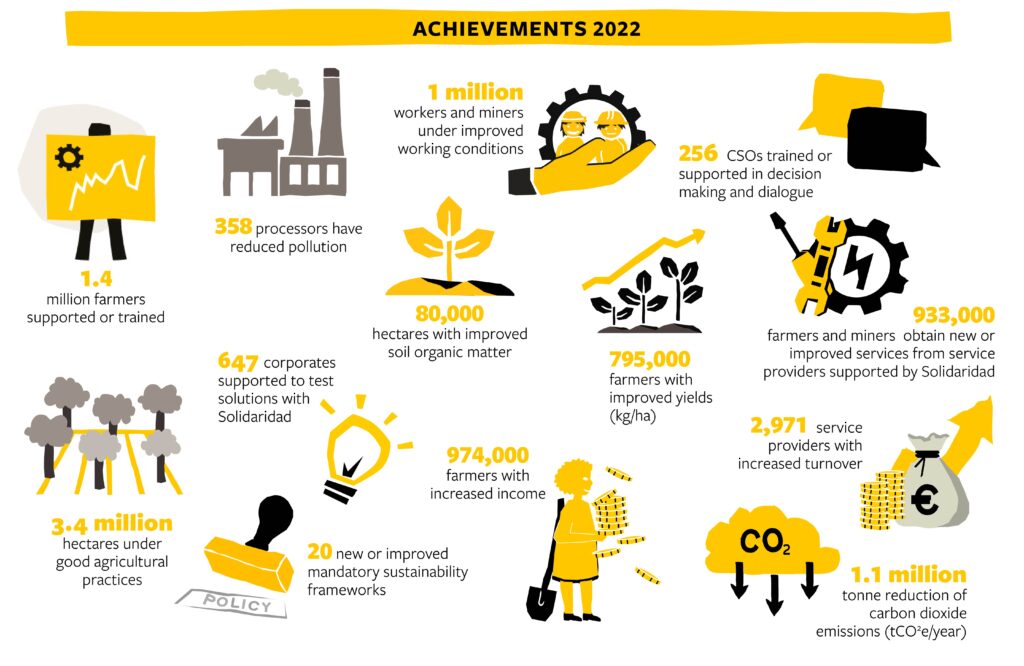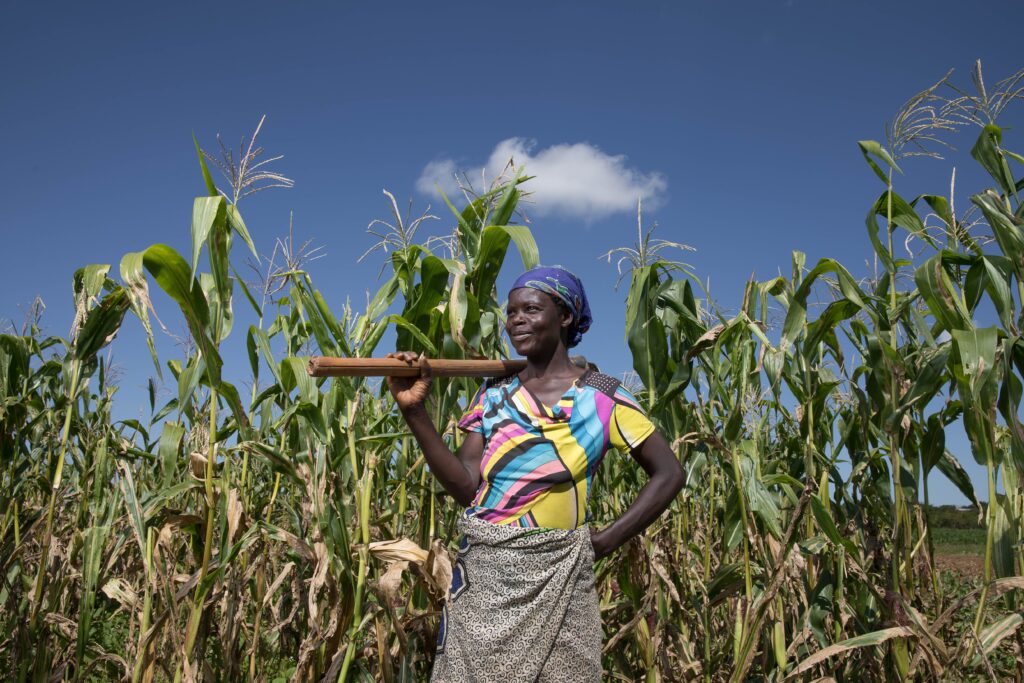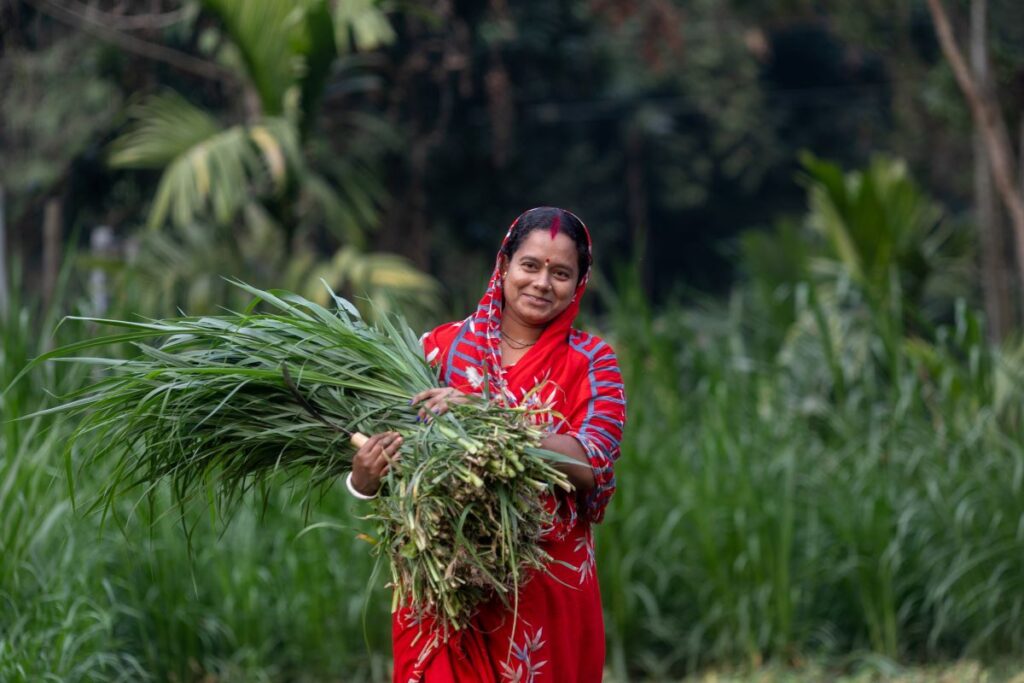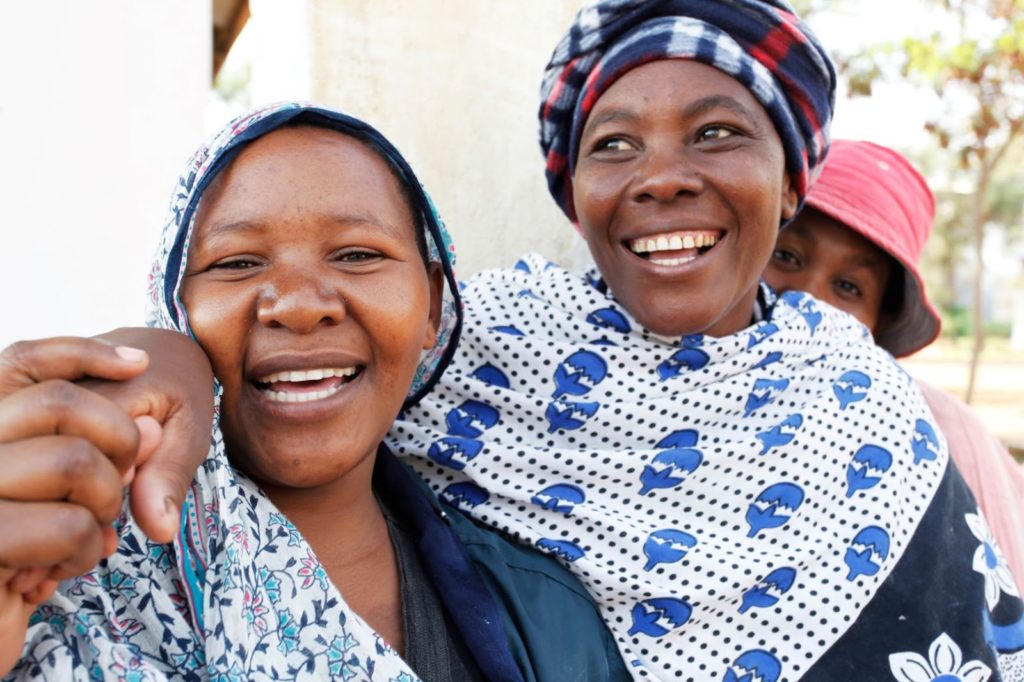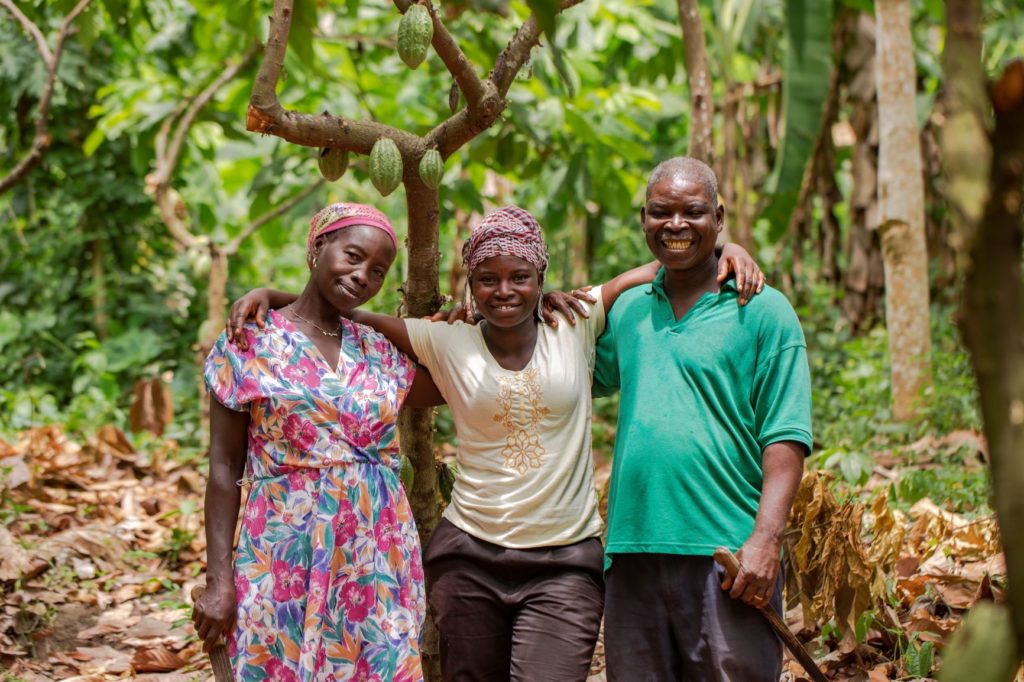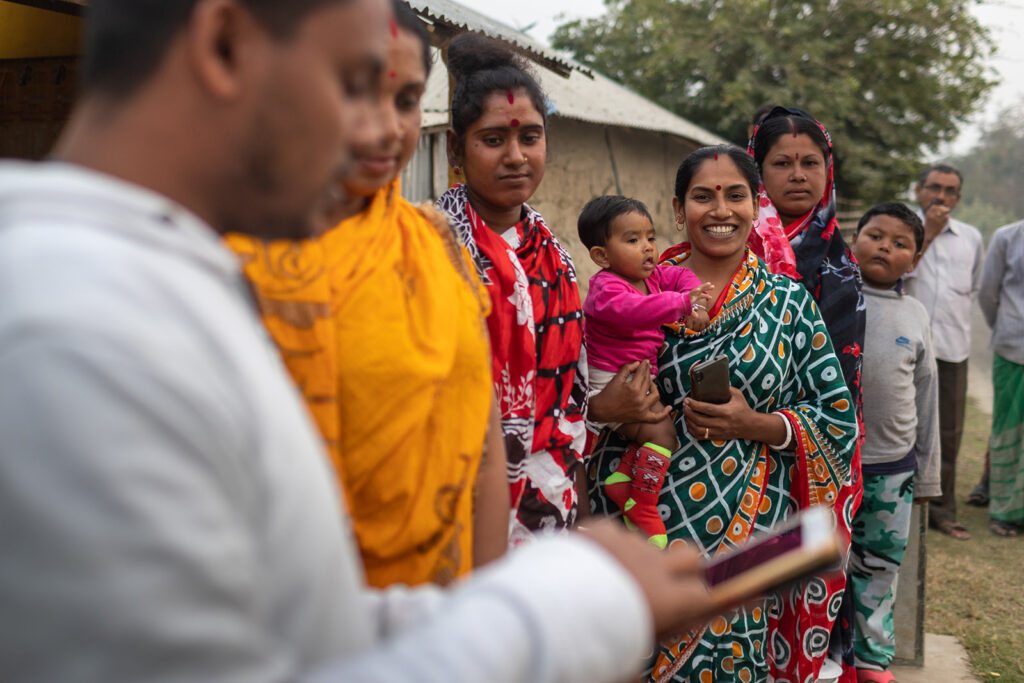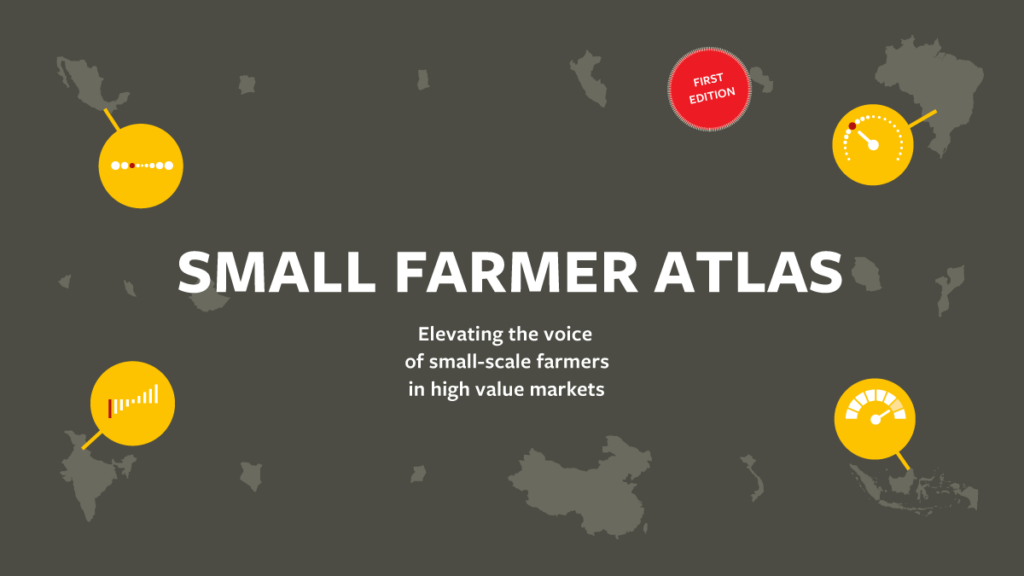Being a member of a savings or lending group has enabled me to access loans for investments into my coffee business and household needs. Access to loans means that I can afford farming inputs and pay for labor during picking season.
Suzan Malya, coffee farmer and entrepreneur in Tanzania
Suzan Malya (left in the picture above) is a coffee farmer and entrepreneur in Tanzania. Her story shows how essential it is to invest in women, and the domino impact effect this can have.
On International Women’s Day, Solidaridad joins the international community in amplifying the crucial message that investing in women is vital to accelerate the progress in achieving a sustainable and inclusive society.
This message is not new. Yet, numerous challenges across the world still stand in the way of ensuring women’s rights, and achieving gender equity and equality; so we must keep the message on repeat for as long as it takes. Meanwhile, there’s no time to waste.
According to the UN, there is currently an alarming $360 billion annual deficit in gender equality measures in the run up to 2030. There are a number of key areas across gender equality challenges that require urgent action. These touch upon human rights issues, ending poverty, increasing gender-responsive financing, tackling the current economic system which is unsustainable and gender-blind, and supporting feminist organizations.

At Solidaridad, we work in a variety of commodities and contexts, from agricultural supply chains to artisanal and small-scale mining (ASM). In each of these value chains, investing in women is key. Through financial means, but also in the wider sense of fostering an enabling environment where women can create an impact and make genuine change happen, for themselves and others.
Making coffee farming a successful business in Tanzania
For many women living and working in rural areas, building a successful business can be a struggle due to limited access to resources. Suzan Malya, a coffee farmer in Tanzania, overcame challenges to turn her farm into a dynamic small business that provides a vibrant future for her family. Now she serves as an example to others in her community.
It is unusual for a woman in Tanzania to inherit land, which is a capital-intensive resource that many smallholder farmers struggle to acquire. Yet, owning land was not enough for Suzan to establish a productive and profitable farming business. Like other farmers in East Africa, she lacked the technical knowledge for implementing good agricultural practices.
Knowledge of modern coffee farming practices and access to affordable credit has put my coffee business on a path to success.
Suzan Malya, coffee farmer and entrepreneur in Tanzania

Suzan was among the many farmers who learned good agricultural practices from Solidaridad’s Practice for Change: Coffee Resilience programme in East Africa; such as managing a coffee farm, along with the practical skills it takes to be an entrepreneur.
In addition to becoming a lead farmer and training and supporting farmers in the surrounding communities, Suzan also took part in a gender training, which she credits for providing her and other women in her community with financial literacy and business management skills. Following this, she joined a Nia Women’s Group (“Nia” is Swahili for “Intention”), a village savings and lending association (VSLA).
Women miners take the lead for a more inclusive sector in Peru
In Peru, the members of the National Network of Women in Artisanal and Small-Scale Mining are leading by example. The network comprises over 430 women in some of the most important mining regions in Peru, with the goal to strengthen, train and support women involved in mining.
Among their efforts – in what is a very male-dominated and complex sector in Peru – the women in the Network indicated the shortcomings in the country’s national ASM policy and highlighted opportunities where public authorities could make it more inclusive.
Consequently, the Network played a significant role in developing and endorsing the Ministry of Energy and Mines’ first Gender Plan. This plan aims to integrate a gender perspective into all phases of action directed towards ASM, including planning, implementation, monitoring, and evaluation.
The primary objective of this Gender Plan is to raise awareness among stakeholders involved in ASM and provide specific gender-focused training. This will facilitate the participation of organized women in ASM in initiatives aimed at improving their economic and productive conditions, thereby enhancing their quality of life.
A sugarcane farmer and compost entrepreneur in India
Swati Sanjay Pavale is a small-scale sugarcane farmer in the Maharashtra region of India and takes part in a programme helping her find new ways to produce more sugarcane in an environmentally-friendly way, while also boosting her income.
I inherited this farm from my parents. I’ve learned everything from them. Now, I have taken over the farm. I love the work of farming. I love nature and this work provides me with the opportunity to work with nature.
Swati Sanjay Pavale, sugarcane farmer in India
Since the start of the ‘Reducing water usage and carbon emissions in Maharashtra through regenerative and sustainable sugarcane farming’ programme in 2021, Swati has sold over 500 kg of compost, which feeds the soil and is made from waste that used to be burned, thereby saving carbon and reducing air pollution. For many of Swati’s customers, her homemade compost now replaces the conventional fertilizers they used to buy, allowing them to save on production costs and providing Swati with extra income.
Swati and her husband have a small farm in the Sangli district where she grows sugarcane. She also owns six cows that produce milk. Like many women farmers in the area, her husband is the formal owner of the farm, while she does most of the work. And similar to other women’s situations, the income from sugarcane ends up in the pockets of the men.
But the composting project is fully Swati’s own business; the revenue goes directly to her own bank account. It’s the first money that she can really spend in the way she wants. Though Swati mostly spends it on the daily needs for her and her family, her dreams are big. She has managed to save some money to invest in more land and more cows. She’d like to expand with more compost production bags and has already used part of the money to create a new space for extra cows.

Inclusive radio makes a change in shea nut processing in Ghana
In the rural communities in northern Ghana, where shea nut collection and processing is a major source of income for many women, the inherent health and safety risks pose significant challenges. Women engaged in this work are vulnerable to a myriad of hazards including scorpion stings, snake bites, sexual assault, fire burns, and heat exhaustion.
For 40-year-old Rakia Shaibu, who has been in the business for 20 years, access to training through an inclusive radio programme has been transformative. Instituted to educate and create awareness on issues pertaining to the sustainability of the shea supply chain, the programme has become a beacon of hope for Rakia and many others like her.
The ‘Strengthening the Sustainability of the Shea Supply Chain in Northern Ghana’ project, of which Rakia is a participant, uses the power of radio to reach collectors and processors, even in most remote areas. The project is helping 10,000 women in ten communities to improve business skills, collective marketing, health and safety, and implement climate-smart agriculture and income diversification.

Today, Rakia, who once described the process as perilous with minimal economic returns, has learned how to process quality butter and now has a storage facility to store her nuts, which she sells when the demand is high. As a regularly featured guest on the radio programme, she shares her experiences and the results gained from applying new practices. She said the programme has created a sense of purpose for her and other shea nut collectors and processors in her community.
The Shea Nut Time radio programme has made me quite popular in this community and neighboring ones. I constantly get people reaching out to me to teach them some of the methods and techniques I share on shea nut processing.
Rakia Shaibu, shea nut processor in Ghana
Keep making strides towards gender equity
Genuine sustainability cannot be achieved without making strides towards gender equity across the world. There’s still much to be done, and whilst the stories above give hope, they must also further strengthen the resolve to keep working harder to reach this vital goal.
Are you interested to know more about our work in accelerating change? Have a look at this piece by Neha, Gender Lead at Solidaridad Asia, who shares her perspective on the importance of investing in women and the feminization of the agricultural supply chain.


